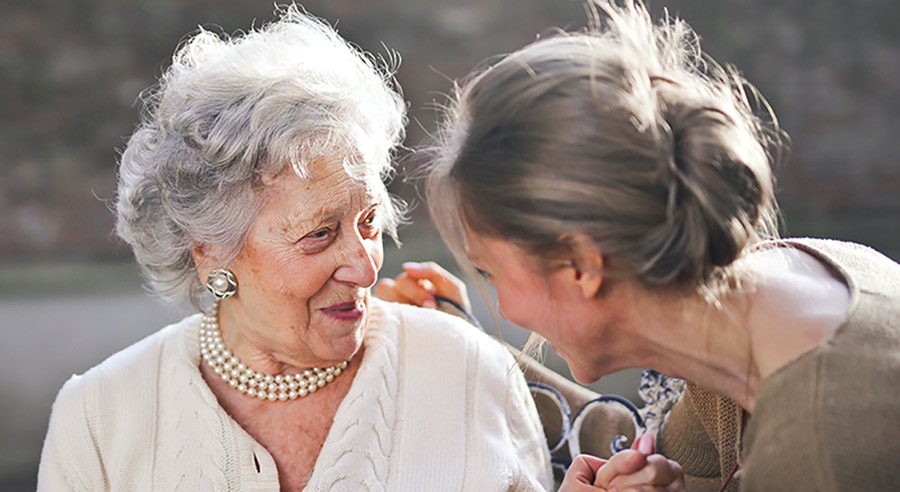Understanding the Connection In Between Home Care Providers, In Home Caregivers, and NDIS Support Coordinators
Understanding the Connection In Between Home Care Providers, In Home Caregivers, and NDIS Support Coordinators
Blog Article
The Growing Need for In Home Care Givers: Factors Families Select Expert Treatment Over Standard Facilities
The enhancing preference for in-home caregivers over conventional centers is a considerable trend improving the landscape of senior treatment. Families are drawn to the advantages of individualized care that aligns with private requirements and choices, allowing elders to preserve a sense of autonomy in a familiar atmosphere.
Customization of Treatment
Personalization of care in home caregiving is crucial for meeting the distinct requirements of each individual (ndis plan manager). This technique makes sure that care strategies are tailored to the certain demands of the individual, considering their case history, personal choices, and way of living. By concentrating on the individual's one-of-a-kind situations, caretakers can promote a feeling of dignity and freedom, which is usually lacking in even more institutionalized settings

Home caregiving allows for continuous observation and modification of care strategies, making certain that adjustments in health standing or personal choices are without delay attended to. Ultimately, personalized treatment in home settings significantly contributes to the overall health of clients, making it a crucial part of contemporary caregiving techniques.
Comfort of Home Environment
The convenience of a home atmosphere plays a critical function in the performance of home caregiving. Several individuals, especially senior citizens, experience heightened stress and anxiety and stress and anxiety when positioned in strange setups such as standard treatment centers. Home caregiving offers an acquainted ambience, full of individual valuables, cherished memories, and the complacency that originates from being in one's very own space. This experience can significantly improve emotional wellness, which is crucial for recuperation and total health.
In addition, the home environment enables for a customized approach to caregiving, fitting specific preferences and routines. Households can produce an environment that reflects their enjoyed one's lifestyle, making sure that care is supplied in a way that feels natural and comfortable. This tailored setup encourages far better communication and communication in between caretakers and clients, fostering depend on and connection vital for effective care.
In addition, the convenience of home can promote social links, as family members and friends can visit a lot more quickly, supplying essential psychological assistance. home care providers australia. On the whole, the home environment not only aids to keep self-respect and freedom but likewise adds to a better of treatment, making it a recommended choice for households looking for specialist caregiving solutions

Enhanced Self-reliance for Seniors
Home caregiving not just provides convenience yet likewise promotes enhanced self-reliance for senior citizens. Unlike traditional centers, at home treatment permits elders to keep their daily routines and involve in acquainted tasks within their own environment. This freedom is crucial for their psychological well-being and total lifestyle.

Additionally, in-home caregivers can adjust their services to provide particularly to the unique requirements of each senior, advertising a higher feeling of control. This adaptability makes sure that elders can enjoy their pastimes, fraternize family and pals, and continue to be active in their neighborhoods, even more enhancing their feeling of self-reliance.
Ultimately, in-home caregiving not only resolves the physical requirements of elders but also encourages them to lead meeting lives, making it a progressively preferred option for family members looking for the very best care services for their liked ones.
Cost-Effectiveness of In-Home Care
In-home treatment provides a cost-effective alternative to conventional nursing facilities, enabling households to provide top quality support for their liked ones without sustaining outrageous expenditures. The expenses connected with assisted living home can be frustrating, frequently exceeding $100,000 each year, which can drain funds swiftly. In contrast, at home treatment services generally charge on a hourly or per-visit basis, enabling family members to customize care strategies according to their budget plan and certain needs.
In addition, in-home care removes added prices associated with center living, such as transport, bed and board, and various management charges. Family members can pick to engage caretakers only when required, possibly decreasing general expenditures. A substantial benefit of at home care is the capability to keep individual regimens, which can add to much better emotional health and minimize the requirement for pricey clinical interventions resulting from abrupt lifestyle adjustments.
Insurance policy insurance coverage, consisting of long-term care insurance, commonly includes at home treatment services, further enhancing monetary accessibility (in home caregivers). Generally, the cost-effectiveness of at home treatment not just reduces the economic concern on households yet also promotes an extra customized strategy to care that this page straightens with specific preferences and requirements
Structure Stronger Family Connections
Offering care in a familiar atmosphere promotes deeper family members connections, allowing loved ones to actively take part in the caregiving procedure. In-home care creates possibilities for households to involve meaningfully with their elderly or disabled family members, advertising psychological bonds that can be difficult to accomplish in institutional settings. The presence of specialist caretakers allows member of the family to concentrate on their relational functions rather than being burdened by the physical demands of care.
Additionally, in-home treatment permits households to maintain their treasured regimens, which can diminish feelings of anxiousness and disorientation commonly connected with moving to care centers. Shared meals, acquainted environments, and the convenience of home offer a sense of security that boosts health and promotes open communication.
Family members can collaborate with caregivers to create customized treatment strategies that reflect the specific choices and requirements of their loved ones. This joint method not only empowers the elderly but also enhances the family, as participants share obligations and support one an additional through difficult times. Eventually, in-home treatment grows a nurturing environment where partnerships can prosper, enhancing the high quality of life for both caretakers and receivers.
Verdict
The raising preference for at home caregivers highlights a significant change in just how family members approach elderly care. As these factors straighten, at home treatment arises as a compelling choice to traditional centers, eventually advertising the well-being and high quality of life for elders.
Family members are investigate this site attracted to the benefits of customized care that lines up with individual requirements and preferences, enabling senior citizens to keep a feeling of freedom in an acquainted setting.In-home treatment uses an economical choice to conventional nursing facilities, allowing families to provide high quality assistance for their loved ones without incurring exorbitant expenses. In contrast, in-home care services usually charge on a per-visit or hourly basis, enabling family members to customize care plans according to their spending plan and certain demands.
At home treatment produces opportunities for family members to involve meaningfully with their handicapped or elderly loved ones, advertising psychological bonds that can be hard to attain in institutional settings.The increasing choice for at home caretakers highlights a significant change in just how families approach elderly care.
Report this page